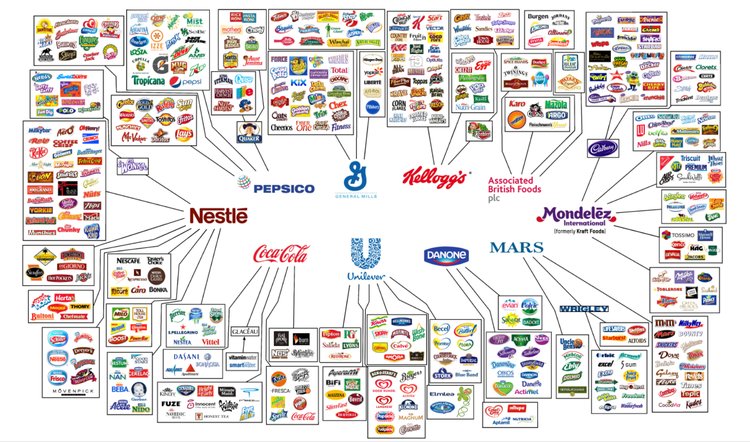 By Patrick Wood
By Patrick Wood
The International Monetary Fund says that the reason for growing market concentration is unclear. Unclear? Really?
A prominent financial publication MarketWatch stated,
Growing monopoly power is seen across the developed world, which could be a contributor to ills ranging from lackluster investment growth to growing income inequality, a new International Monetary Fund report finds.
The IMF paper, released ahead of its World Economic Outlook, finds that firms’ price markups over marginal costs rose by close to 8% since 2000 in advanced countries. The study looked at nearly 1 million firms across 27 countries. It didn’t find the same markups in the emerging markets it studied.
The IMF’s macroeconomic reasoning behind this conclusion is not as important as the conclusion itself.
However, this is nothing new. Consolidation toward outright monopolies has been going on since the early 1970s when the Trilateral Commission first announced their “New International Economic Order.”
Today, four companies produce 84 percent of our beef. Four companies control the world’s grain market. Six corporations control 90 percent of the media. Ten companies control everything you buy. Three companies completely dominate the farm equipment market. Fourteen companies control the entire global auto industry. You get the idea. This extends to many different industries where giant global corporations are gobbling up everything in sight.

How did we get to this point?
While there are many finer points that might be made, I lay the blame on the New International Economic Order, which rebranded itself as Sustainable Development and Agenda 21, aka Technocracy, in 1992 at the infamous Earth Summit meeting in Rio de Janeiro.
Early critics of Agenda 21 who actually participated in the UN’s conference were largely silenced or ignored. Two such people wrote a book in 1994 called The Earth Brokers, and they spilled the beans:
“We argue that UNCED has boosted precisely the type of industrial development that is destructive for the environment, the planet, and its inhabitants. We see how, as a result of UNCED, the rich will get richer, the poor poorer, while more and more of the planet is destroyed in the process.”
A young woman from Nairobi who was allowed to sit in on the Rio proceedings, addressed the assembly with her own conclusions:
“The Summit has attempted to involve otherwise powerless people of society in the process. But by observing the process we now know how undemocratic and untransparent the UN system is. Those of us who have watched the process have said that UNCED has failed. As youth we beg to differ. Multinational corporations, the United States, Japan, the World Bank, The International Monetary Fund have got away with what they always wanted, carving out a better and more comfortable future for themselves… UNCED has en sured increased domination by those who already have power. Worse still it has robbed the poor of the little power they had. It has made them victims of a market economy that has thus far threatened our planet. Amidst elaborate cocktails, travailing and partying, few negotiators realized how critical their decisions are to our generation. By failing to address such fundamental issues as militarism, regulation of transnational corporations, democratisation of the international aid agencies and inequitable terms of trade, my generation has been damned.”
I hope these words can be emblazoned on your mind, because it reveals where the modern scam started, and why. The IMF knows full well why monopolies are growing throughout the world, why the middle class is disappearing and why wealth inequality is at the highest level ever.
All the sordid details of this deception is contained in Technocracy Rising: The Trojan Horse of Global Transformation and Technocracy: The Hard Road to World Order.

Be the first to comment on "Monopoly Power Is Growing In Response To Sustainable Development"